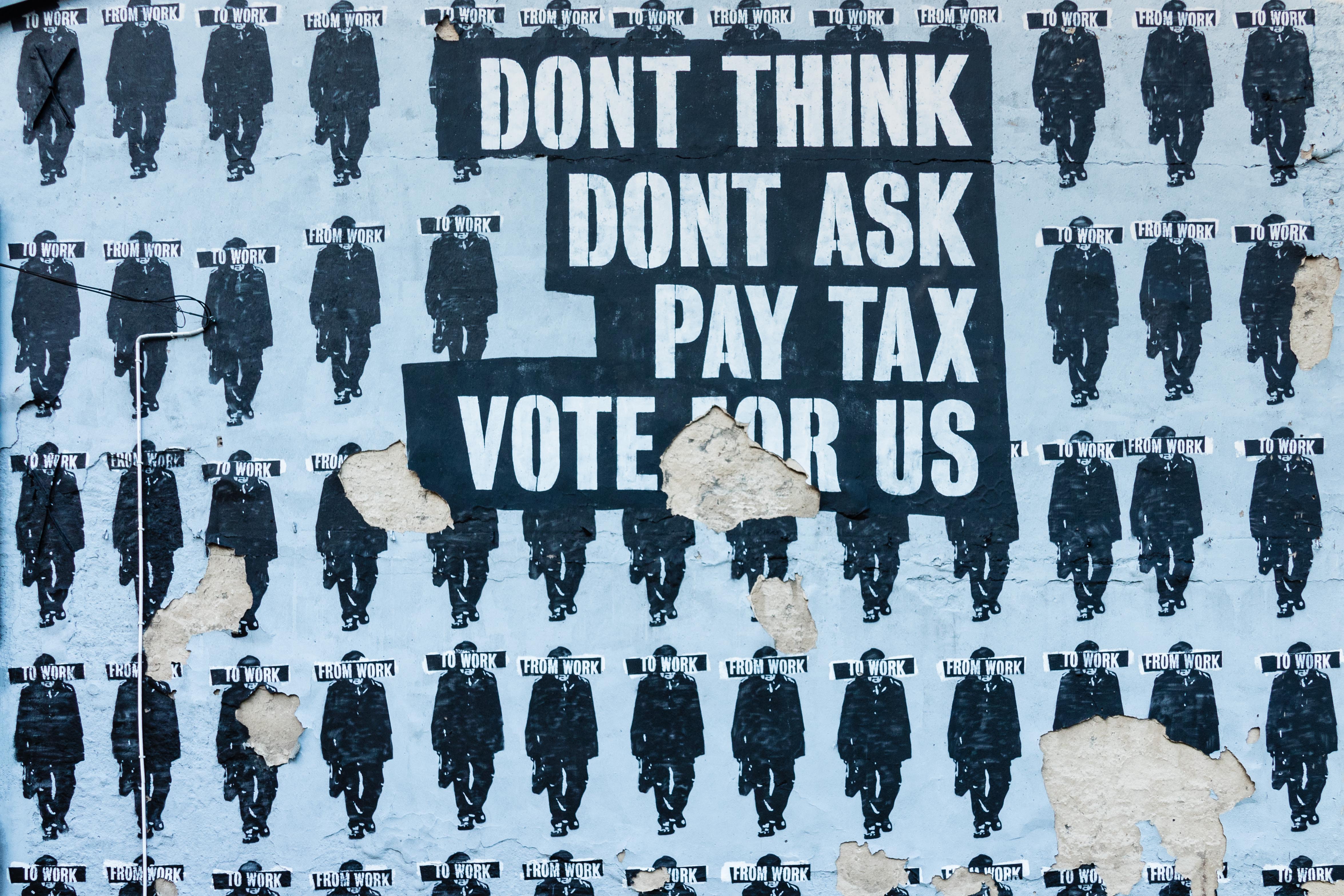Updating Democracy for Future Generations: Adding a Fourth Branch to the Separation of Powers Model

Share this Post
Over the past two decades, political science has engaged in a lively debate about the “presentism” of democracies, and their most important institution, parliamentarianism.[1] Presentism has become an increasingly urgent concern, because the present-day demos of the twenty-first century can affect the living conditions of a future demos far more than in former times. A prominent reason for this state of affairs is, of course, the generations-long crisis of climate change. What institutional reforms could help us better include future generations’ likely interests in the democratic decisions we make today? In this essay, I discuss one way to alleviate the problem of presentism in democracies: the addition of a fourth, future-oriented branch of government to the separation of powers model. This branch could take the form of offices of future generations (OFGs).
Alleviating democracies’ endemic presentism
Democracies are skewed in favor of presentism. From this diagnosis, some studies arrive at conclusions that can be taken as critiques of elected politicians or “the political class.” But these critiques underestimate the role and influence of voters. Faced with the choice between receiving a certain state benefit (or tax concession) either in the present or in the near future, most voters opt for the present for what appear to be rational reasons.[2] It would also be inappropriate to equate more direct democracy with less presentism; there is empirical evidence that representative and direct democracies are subject to presentism in pretty much the same way.[3]
In a democracy, opposition politicians want to get elected and governing politicians re-elected. This is not to say that, as a group, politicians are exclusively motivated by power, position, and privilege (even earnest pursuit of policy outcomes requires first getting elected). However, during campaigns, political parties have to focus on the current preferences of the current electorate. Future people cannot vote today, and cannot be included in the calculus to maximize votes. Political competition between two politicians, one of whom promises some benefits in the near future, while the other one pledges the same benefits but in the more distant future, will not favor the latter—at least not as long as the electorate is presentist. Future-awareness among politicians cannot translate into sustainable decision-making under the dictates of frequent electoral campaigns. The rhythm of democracy conforms to the timing of election periods (i.e., periods of four to five years), exhibiting structural incentives for politics that glorify the present and disregard the future. For this reason, asking politicians to consider the interests of future people more deeply are likely to go unheard. Mutatis mutandis, John Stuart Mill’s insight from 1861, still holds true today:
Rulers and ruling classes are under a necessity of considering the interests and wishes of those who have the suffrage; but of those who are excluded, it is in their option whether they will do so or not; and, however honestly disposed, they are, in general, too fully occupied with things which they must attend to to have much room in their thoughts for any thing which they can with impunity disregard.[4]
The result of voters’ presentist attitudes on the one hand and politicians’ need to campaign frequently on the other is a breach of the all-affected principle. The all-affected principle states that all citizens who are affected by decisions—both current and future citizens—should have their say on the laws that rule their lives. Some effects of present generations’ decisions will affect people of tomorrow, too.[5] The right to participate in the decision-making process is an important normative justification for democracy.
But future generations of the citizenry cannot vote (or participate otherwise) today. Conflicts of interest are decided according to the opinion of the majority of eligible voters, not the majority of those affected by a decision. This presents an internal deficiency of current democratic systems that brings into being a special form of “representation gap.” This gap differs from the lack of electoral representation experienced by societal minorities or groups such as women, the elderly, immigrants, and minors.[6] These groups are present in the here and now, and can participate in political discourse, write letters, appear on talk shows, and in many cases, vote in elections. None of this applies to future generations. If future generations were able to claim their interests in the political decision-making process, the majority stakes in important political decisions would be different.
One example of this dynamic is energy policy. Scientific analyses indicate that current energy policy intensifies the natural greenhouse effect and causes the global average temperature to rise.[7] The present’s fossil fuel-based energy production maintains a high standard of living for current citizens. However, such a policy brings grave disadvantages to those who will live in the mid-term future (50–100 years from now). If only those born within the next 200 years, along with present-day citizens, were to have a say on energy policy in the next general election, all political parties would hasten to rewrite their platforms in order to facilitate a much faster reduction of greenhouse gas emissions.
The problem of “presentism” in democracies is not limited to environmental issues, however. Long before the advent of the modern environmental movement, excessive public debt was a prime example of the careless use of the future.[8] Underinvestment in education or lack of adjustments to social security systems are other examples of a lack of future orientation in current political systems.
From a three- to a four-power model
What is required is nothing less than a paradigm shift. The new paradigm would establish a “future branch,”[9] representing the interests of future citizens in the legislative process, and regard future generations as a legitimate and necessary part of a democratically constituted community. The linchpin of this new paradigm is that the age-old separation of powers into legislative, executive, and judicial branches is no longer appropriate today. Just like in the eighteenth century, when in the course of first establishing a democracy in a large territorial state, the Federalist Papers proposed a system of “checks and balances” to protect minorities against the “tyranny of the majority,” so today, we are in need of “checks and balances” against the tyranny of the present over the future.
“The linchpin of this new paradigm is that the age-old separation of powers into legislative, executive, and judicial branches is no longer appropriate today.”
The historical roots of the separation of powers are usually associated with John Locke and Charles de Montesquieu. However, thinkers as early as Aristotle recommended a mixed constitution or, more specifically, a mixture of democracy and oligarchy designed to prevent an excessive concentration of power, which he called “polity.” According to Aristotle, a hybrid constitution is more durable because the mixture keeps the different forces in balance. In his 1690 Two Treatises of Government, John Locke distinguishes between legislative and executive, but leaves no room for an independent third judicial power. Locke introduces a clear hierarchy of powers when he writes that “this legislative is not only the supreme power of the common-wealth, but sacred and unalterable in the hands where the community has once placed it.”[10]
Charles de Montesquieu, the “father” of the tripartite separation of powers doctrine, applies the classical division of legislative, executive, and judiciary power in his De l’esprit des lois of 1748. When considering the English constitution, he is concerned with the sharing and balancing of powers.[11] “In every government there are three sorts of power: the legislative; the executive, in respect to things dependent on the law of nations; and the executive, in regard to things that depend on the civil law,” Montesquieu writes.[12] He adds that this latter power is to be referred to as the judiciary power of the state, bringing us to the classic tripartite division of today.
Introducing the Office of Future Generations (OFG)
Building on the precedent set by the “founding fathers” of the separation of powers idea, we ought to reform the current tripartite division to strengthen democracy’s checks and balances, and to prevent the tyranny of the present over the future. Offices for future generations (OFGs), tasked to give future citizens a voice today, already exist (or have existed) in several countries. Currently existing OFGs vary in their institutional strength and prerogatives. Here, I use the term OFG more narrowly than typical: to describe independent institutions that are given real bargaining power by their statutes and in practice. The specific power I advocate for OFGs is the prerogative to introduce legislation in parliament.
OFGs should be unelected bodies.[13] While popular elections would maximize the formal independence of the organization’s members—vis-à-vis the legislative, executive, and judicial branches—they would inescapably subject the election candidates to the presentist pressures of parliamentary elections, thereby defeating the purpose for which the office was created.
“In a four-power model, OFGs would use their power differently than courts, working as proposers, not preventers.”
Lacking a popular mandate, OFGs could be criticized as unaccountable. However, most scholars agree that courts can be unelected bodies, and yet serve democracy quite well, providing a check on the powers of the executive and legislature. In a four-power model, OFGs would use their power differently than courts, working as proposers, not preventers. The right to initiate legislation negates the possibility of destructive input—rights intended to suspend laws and programs temporarily or permanently. Limiting the OFGs’ powers to the initiation of legislation also avoids the problem of proliferating veto players, which otherwise may increase political gridlock. By limiting it to a purely constructive role, the legitimacy and constructiveness of the OFG is ensured. Yet, the first branch, the legislative, does not necessarily need to follow the OFGs’ advice. It would be naïve to believe that the legislature would take up and implement each and every proposal made by an OFG. Rather, it stands to reason that the legislature would pass most of its bills to committees, where they would face a silent death. However, there is reasonable hope that some OFG-proposed legislative initiatives might garner the support of future-oriented lawmakers, as well as that of the press and public. The power to partake in setting the agenda of the legislative process should not be underestimated.
Conclusion
Unelected representatives for future citizens, appointed by elected politicians but not for their pleasure,[14] are a necessary and legitimate part of “democracy” in the present. Independent bodies have been a fundamental part of democratic architecture since classical Athens—from overseers, auditors, and supervisors to constitutional courts and public ombudsman. The role of such bodies is to support democracy and equip it against the anxieties of the majoritarian principle. OFGs are democratically legitimized as long as they are granted their status by law—and as long as this status can be revoked by law as well.[15]
Israel Public Policy Institute (IPPI) serves as a platform for exchange of ideas, knowledge and research among policy experts, researchers, and scholars. The opinions expressed in the publications on the IPPI website are solely that of the authors and do not necessarily reflect the views of IPPI.
Foot Notes
[1] See, for example, Jonathan Boston, Governing for the Future: Designing Democratic Institutions for a Better Tomorrow (Bingley, UK: Emerald, 2016); and Iñigo González-Ricoy and Axel Gosseries, eds., Institutions for Future Generations (Oxford: Oxford University Press, 2016). For a list of twenty references, see Jörg Tremmel, “The Anthropocene Concept as a Wake-up Call for Reforming Democracy” in The Anthropocene Debate and Political Science, Routledge Environmental Research Series, ed. Thomas Hickmann et al. (London: Routledge, 2018).
[2] On further distinguishing “voters” into “young voters” and “old voters” see Michael K. MacKenzie, “Institutional Design and Sources of Short-Termism,” in Institutions for Future Generations, ed. Iñigo González-Ricoy and Axel Gosseries (Oxford: Oxford University Press, 2016), 28. In some theories it is assumed that older individuals tend to have stronger short term-interests than younger ones because the former are not as likely to experience the delayed costs of today’s presentist actions, for example, see Philippe Van Parijs, “The Disfranchisement of the Elderly, and Other Attempts to Secure Intergenerational Justice,” Philosophy & Public Affairs 27, no. 4 (1998): 292–333.
[3] Giuliano Bonoli and Silja Häusermann, “Who Wants What from the Welfare State? Socio-structural Cleavages in Distributional Politics: Evidence from Swiss Referendum Votes,” in A Young Generation under Pressure? The Financial Situation and the “Rush Hour” of the Cohorts 1970-1985 in a Generational Comparison, ed. Jörg Tremmel (Berlin/Heidelberg: Springer, 2009), 187-205.
[4] John Stuart Mill, Considerations on Representative Government (New York: Liberal Arts Press, 1958 [1861]), 131.
[5] The so-called non-identity-problem was brought forward in parts of the literature to claim that high greenhouse gas emissions do not, in fact, harm the particular people that will live in the future. For the refutation of this claim in the context of offices for future generations, see Jörg Tremmel, “The Non-Identity Problem: An Irrefutable Argument against Representation of Future Generations?”, in Theories of Sustainable Development, ed. Judith Enders and Moritz Remig (London: Routledge, 2015), 126-144.
[6] With regard to the case of minors, Tremmel and Wilhelm advocate a “flexible voting age,” building on the willingness of minors to participate in elections. This proposal takes into account that babies, little children, and many younger adolescents have no interest in political participation anyway. The “flexible voting age” proposal contains a need for adolescents to register in voting lists and must strictly distinguished from proposals that come under the name of “voting from birth on” or “voting age zero,” see Jörg Tremmel and James Wilhelm, “Democracy or Epistocracy? Age as a Criterion of Voter Eligibility,” in Youth Quotas and Other Efficient Forms of Youth Participation in Ageing Societies, ed. Jörg Tremmel et al. (Dordrecht: Springer, 2015), 125-147.
[7] After 1990—when the Intergovernmental Panel on Climate Change’s First Assessment Report assessed a connection between anthropogenic carbon dioxide emissions and climate change with a 90 percent probability—presently living generations can no longer legitimately claim ignorance of the consequences of their actions, see J.T. Houghton, G.J. Jenkins, and J.J. Ephraums, eds., Climate Change: The IPCC Scientific Assessment (Cambridge University Press, 1990).
[8] Thomas Jefferson to John Taylor, 28 May 1816, teachingamericanhistory.org.
[9] For a more detailed outline of the four-power-model idea, see Jörg Tremmel, “Offices for Future Generations: Justification, Typology and Some Key Design Criteria,” in Intergenerational Justice in Sustainable Development Treaty Implementation, ed. Marcel Sazbó and Marie-Claire Cordonier Segger (Cambridge University Press, forthcoming). The proposal a future branch is quite new and it has not yet been pursued in political science or philosophy. While a number of scholars and institutions demanded a transformation of democracy that goes beyond marginalia, they have not called for a four-power model.
[10] John Locke, Two Treatises of Government (London, 1823 [1690]; McMaster University Archive), chap. 11, § 134.
[11] Charles de Montesquieu, The Spirit of Laws, trans. Thomas Nugent (Kitchener, ON: Batoche, 2001 [1748], 173-184; 92-93.
[12] Montesquieu, The Spirit of Laws, 173.
[13] As discussed in Tremmel, “Offices of Future Generations,” the proposals for OFGs differ on multiple dimensions: their territorial ambit (e.g., national or supranational), the scope of their competencies, their statutory basis, their governance and accountability arrangements, their composition, and their size and resourcing. A small minority of models propose elected, not appointed, OFG members.
[14] Cf. Philip Pettit, On the People’s Terms: A Republican Theory and Model of Democracy (Cambridge: Cambridge University Press, 2012), 306.
[15] Pierre Rosanvallon, Democratic Legitimacy: Impartiality, Reflexivity, Proximity (Princeton: Princeton University Press, 2011), chap. 4-5.
Jörg Tremmel, “Updating Democracy for Future Generations: Adding a Fourth Branch to the Separation of Powers Model<https://items.ssrc.org/updating-democracy-for-future-generations-adding-a-fourth-branch-to-the-separation-of-powers-model/>,” Democracy Papers, Items: Insights From the Social Sciences, February 6, 2018. Reprinted with permission. Items is an essay forum of the Social Science Research Council<https://www.ssrc.org/> (SSRC).
Israel Public Policy Institute (IPPI) serves as a platform for exchange of ideas, knowledge and research among policy experts, researchers, and scholars. The opinions expressed in the publications on the IPPI website are solely that of the authors and do not necessarily reflect the views of IPPI.
Share this Post

Solving the fashion industry’s waste problem via community-driven innovation
Authors: Nicole Stein & Vered Blass The fashion industry’s status as one of the most polluting industries is…

Could Energy Performance Certificates (EPCs) help curb emissions? A view from Germany
What are Energy Performance Certificates? Energy Performance Certificates (EPCs) have been introduced by the Energy Performance of Buildings…

What role could off-shore wind energy play in Europe's energy transition?
With a goal to reach climate neutrality by 2050 and faced with a new geopolitical situation following Russia’s…
